PCPM delivered a mobile clinic and portable Ultrasound
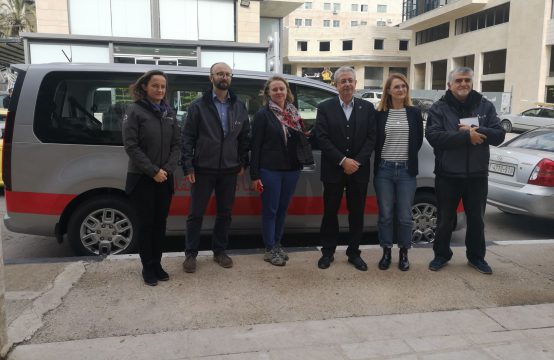
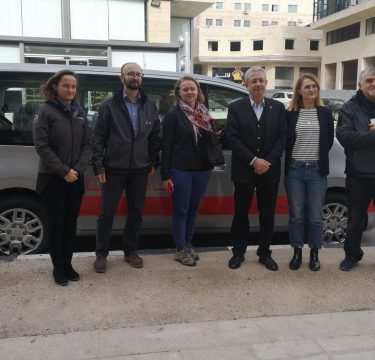
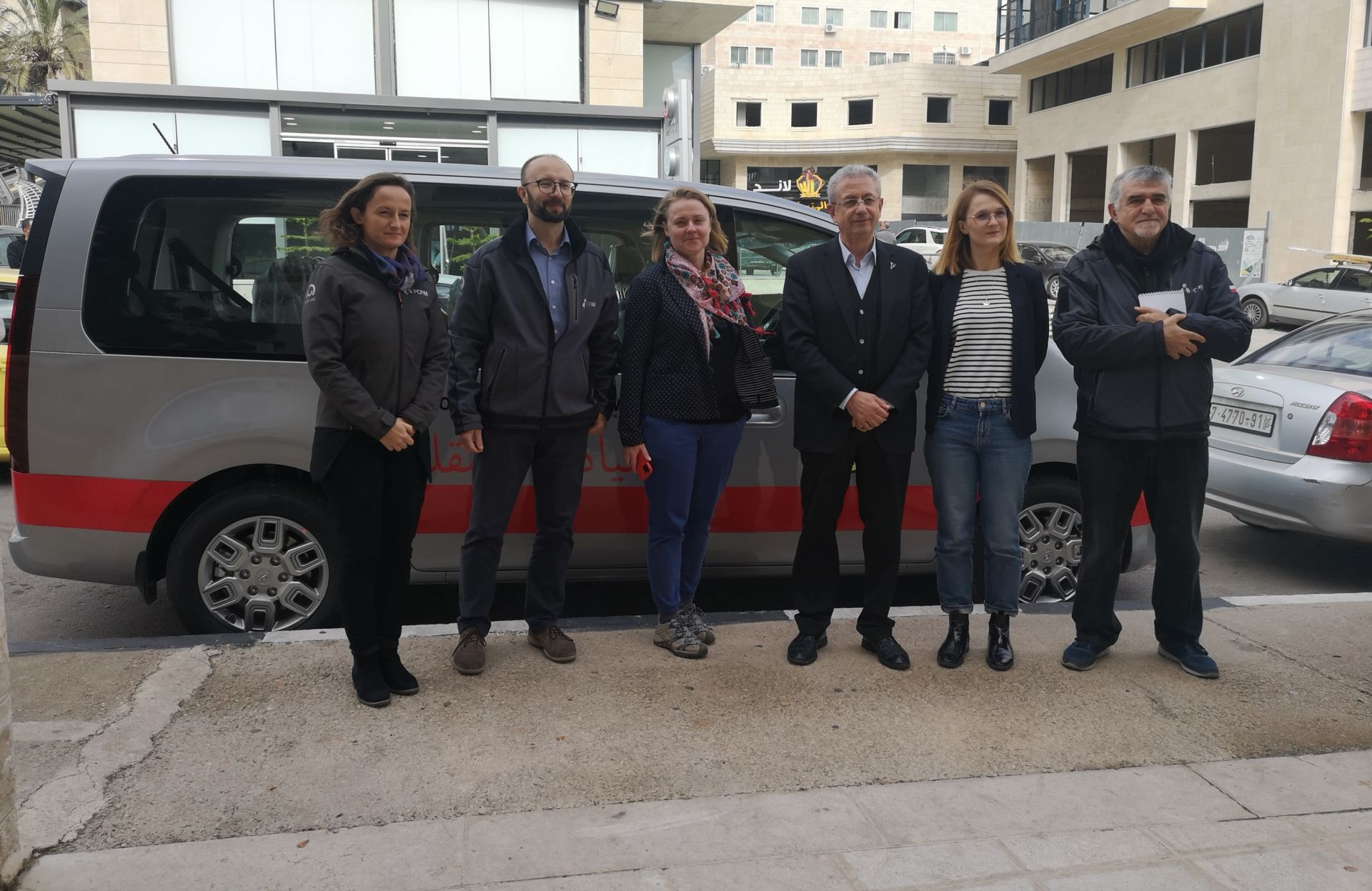
The Palestinian Medical Relief Society (PMRS) is before several difficulties. One of those is driving to the victims on Western Bank of Jordan river(zone C) with basic medical aid. On 62 proc. of Palestinian territories on the West Bank there are no functioning administrative units, not even the Palestinian Ministry of Health. ‘It is a big challenge. People in these areas do not have access to most medical services. Hence, our task is to reach these people and provide them with basic health services’ – says Dr. Mustafa Barghouthi, the Chairman of PMRS.
MEDICAL AID CONDITIONS AFFECT PATIENTS’ SENSE OF DIGNITY
Since the beginning of the project in 2021. The PCPM Foundation, with financial support from the Polish Aid program, has renovated and expanded 30 clinics in the districts of Jenin and Hebron, where residents in the surrounding areas can have their most needed examinations. In 2023, Polish Aid will select another 15 run-down clinics together with PMRS.
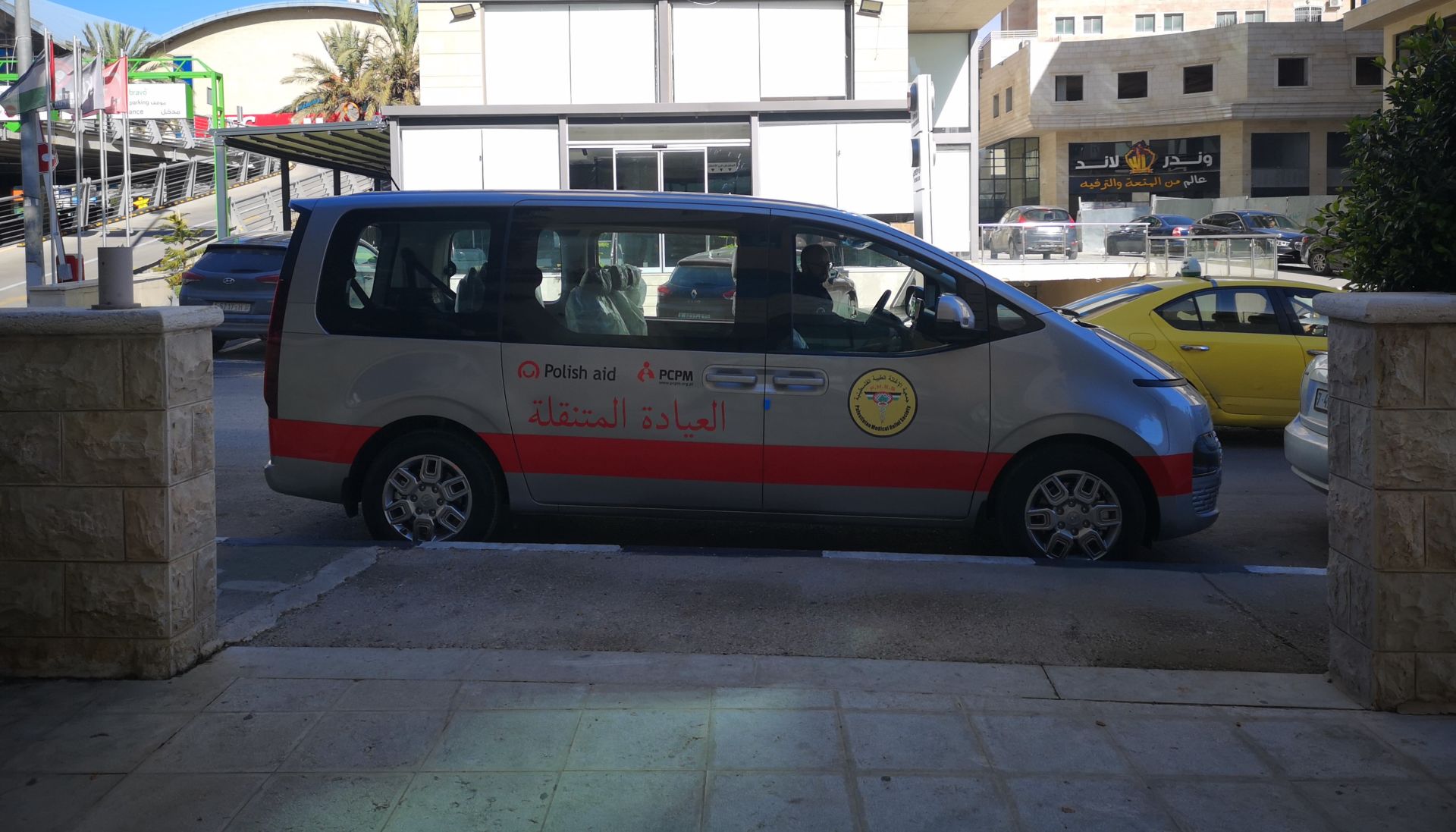
The medical assistance provided by PMRS is not free of charge. “Every procedure is performed for a minimal fee. The patient should pay even a token amount for medicine. This gives a sense of dignity to people who feel that such examinations are not a handout’ – explains Zuzanna Wojcińska, project coordinator from the PCPM Foundation. ‘Also, we receive patients in a condition that affects their sense of dignity and self-esteem. Clean repainted walls, a leak-proof roof, airtight windows, and a tidy waiting room are the bare minimum. It is even more important to provide patients with intimate examination conditions’ – adds Voinovich.
The PCPM Foundation works with other organizations, which co-fund, among other things, the purchase of fuel or basic medical supplies and medicines. The PMRS coordinates the whole project itself, however Palestinian doctors, nurses, and paramedics will be active personnel. Thanks to funding from international organizations, they can receive a small salary for their work.
MOBILE CLINIC AND STATE-OF-THE-ART TESTING EQUIPMENT FROM POLES FOR PALESTINIAN MEDICS
As PMRS staff point out, those who live between the border with Israel and the West Bank separation wall are in a difficult situation. In the area of the town of Jenin, about 8,000 people live in such a zone. There is no permanent medical facility in the area. Their only hope of avoiding even a trip of several days to the nearest facility is regular visits by a mobile clinic.
Often there are situations where, for the sake of the baby, a pregnant woman must travel outside the fenced-off area to access the hospital. This is a tremendously challenging situation for the mother, as she is away from her husband and immediate family at a crucial time. They can’t afford to rent an apartment or hotel, so they live with extended family members, which is not a comfortable solution for either party. As a result of our efforts, last year, we launched a new route for a mobile clinic operating in the Jenin area and residents of areas behind the wall can regularly receive medical services. A state-of-the-art ultrasound machine on board the vehicle provides access to high-end prenatal examinations where the expectant mother lives.
The PCPM Foundation provided 3 state-of-the-art ultrasound machines to replace more than 20-year-old cameras. “The difference in image quality is incomparable. On the old ultrasound equipment, prenatal examinations were inaccurate, and diagnosis of fetal diseases was impossible’ – said Tomasz Lipert, project coordinator from the PCPM Foundation. As he points out, it will be possible to perform about 100 prenatal examinations with each device per month.
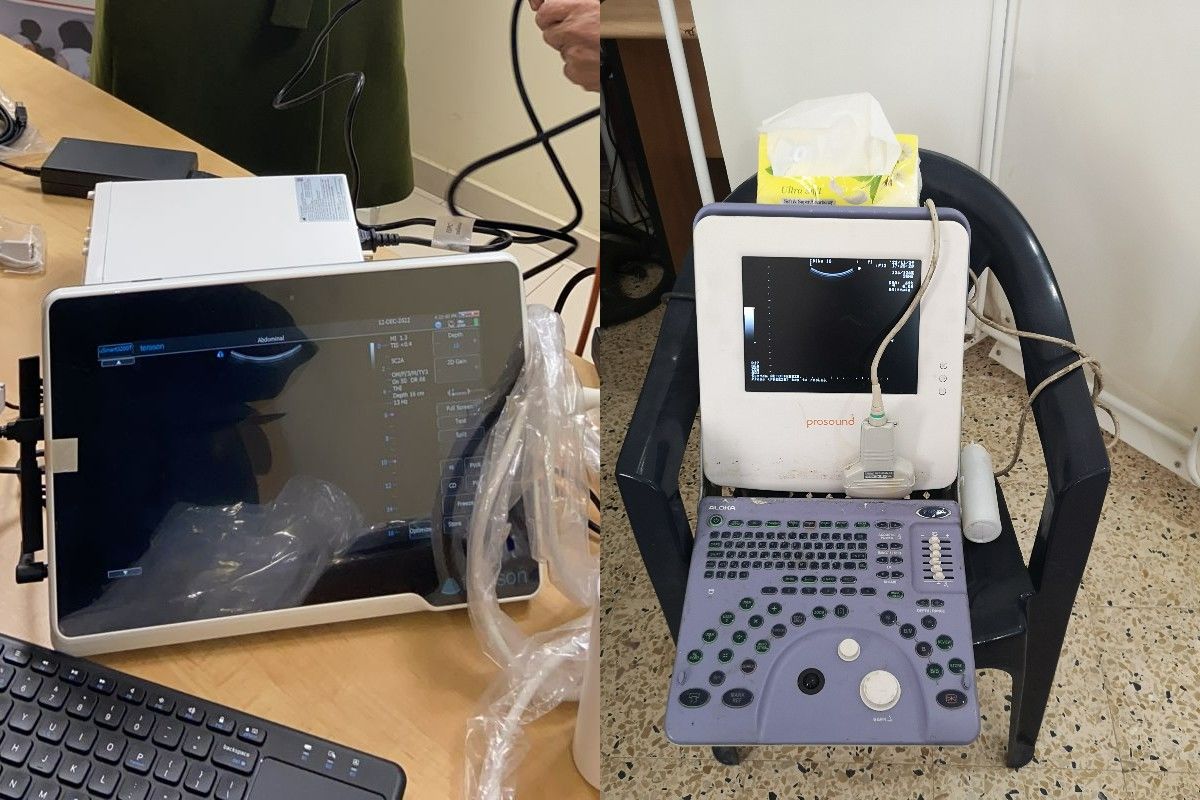
However, the mobile clinic does not only guarantee prenatal testing for pregnant women. Also, the possibility do laboratory examinations, maybe first and foremost it deepens the anti-cardiovascular disease prophylactics, as well as fighting against different types of cancer or hypertension. Within the program, the PCPM Foundation attempts to examine more than 12 500 people until December 2024.
‘The new vehicle supported the PMRS in the implementation of mobile clinic activities and the provision of primary health care services to the most vulnerable communities. The vehicle will increase access in rural, marginalized, and isolated communities in Jenin province’ – says Dr. Jamil Al-Hamad. ‘People in these areas, do not have access to any medical services. Therefore, our task and both challenges are to reach these people and provide them with basic health services. These are mostly poor people, marginalized and living in terrible health conditions’ says Dr. Mustafa Barghouthi.
THE MOST IMPORTANT THING IS TO IMPROVE THE HEALTH CARE SYSTEM
In addition to equipment support for the Palestinian health care system, the PCPM Foundation focuses on training the right staff to train future medics. In addition, the project is funding professional training equipment to improve the qualifications and skills of current and future instructors.
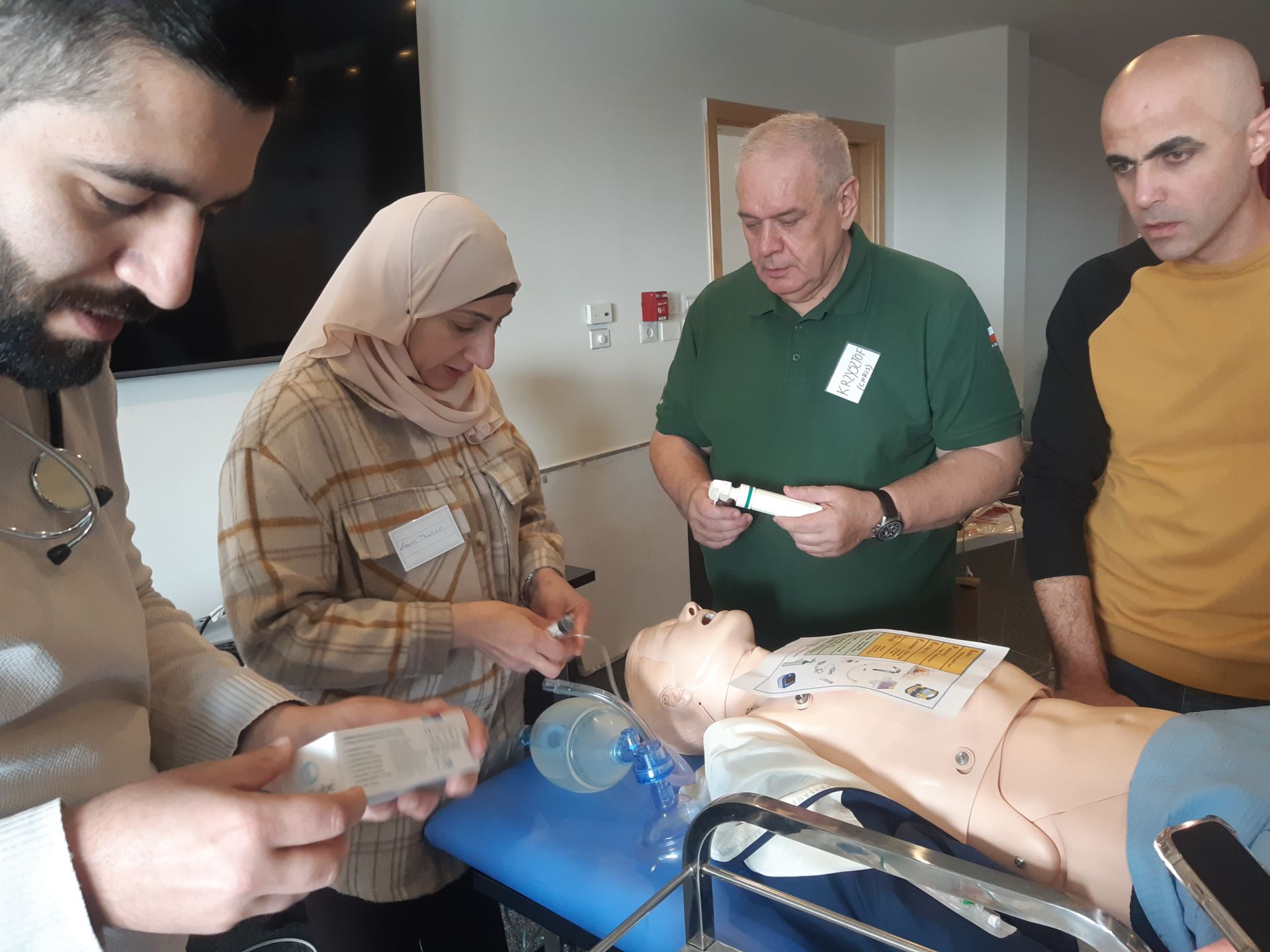
‘The Foundation emphasizes making sure the help we provide is more than individual support. In medical care, the most important thing is the system, so even the most modern equipment is unused if there are not people with the right knowledge. This is the reason the cornerstone of PCPM’s development projects is the transfer of specialized knowledge and the training of local cadres of instructors. Thanks to this, they will soon be the ones who will be able to share their knowledge with future medics’ – says Zuzanna Wojcińska, the coordinator of the Palestinian project from PCPM.
The Polish MFA program has financed the PCPM’s project for 2,864,880 PLN.
We publish up-to-date information about our actions on Twitter.
Instagram – @fundacjapcpm
Facebook – Polish Center for International Aid(PCPM)